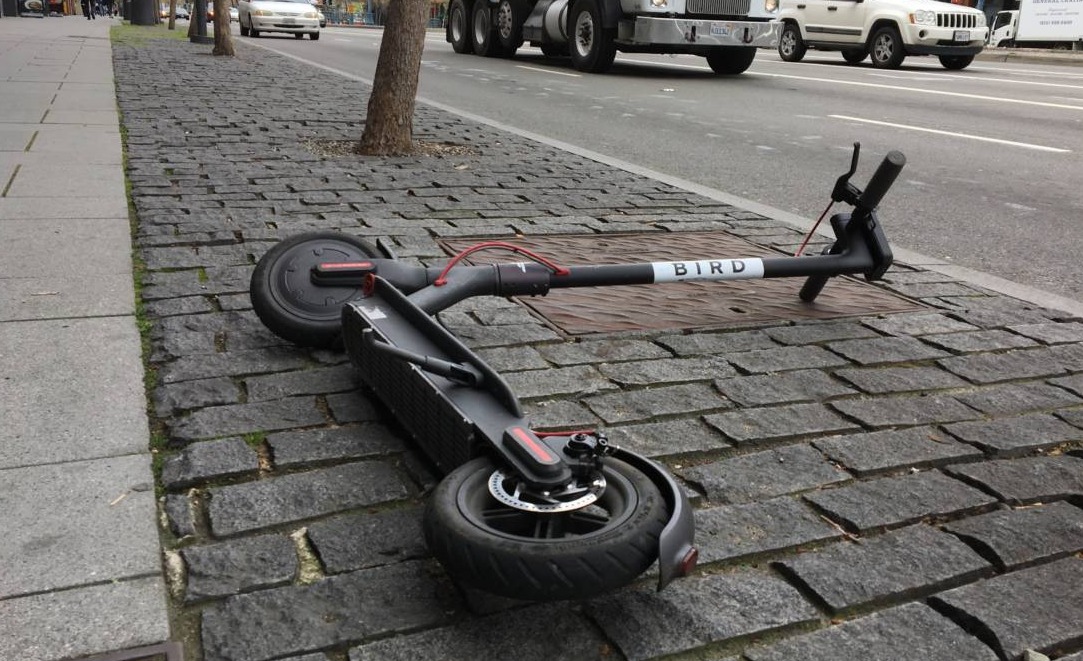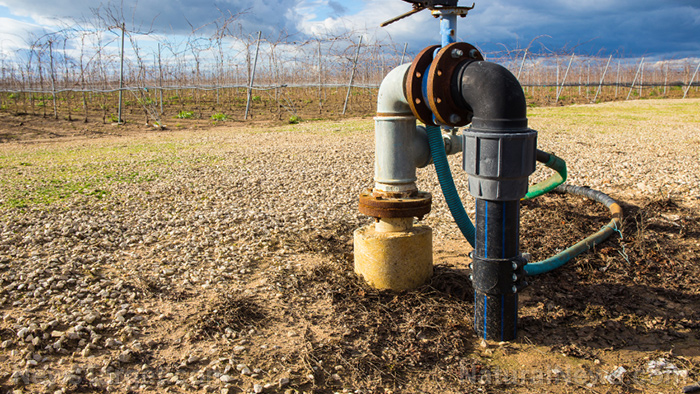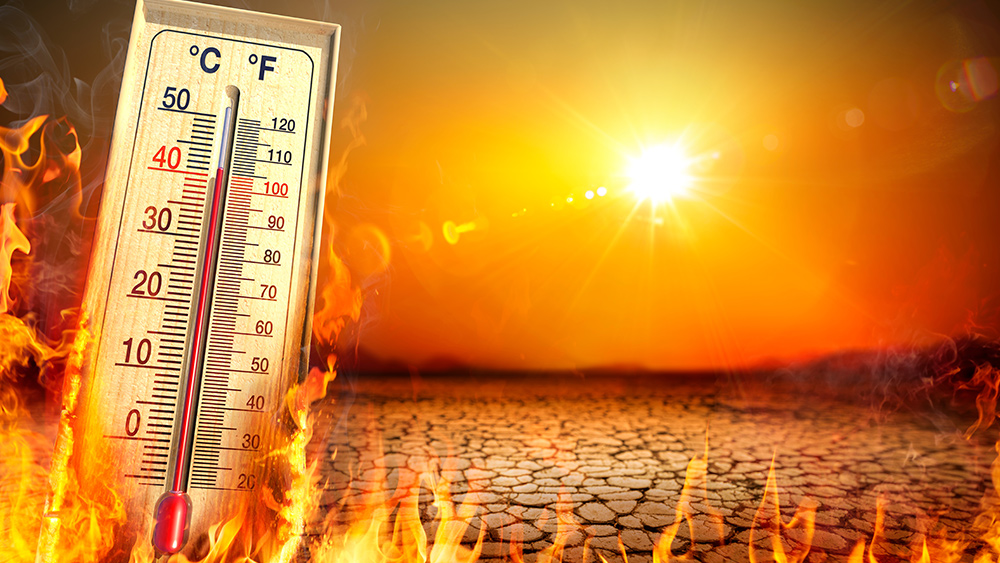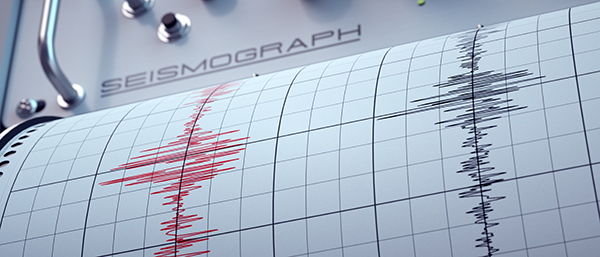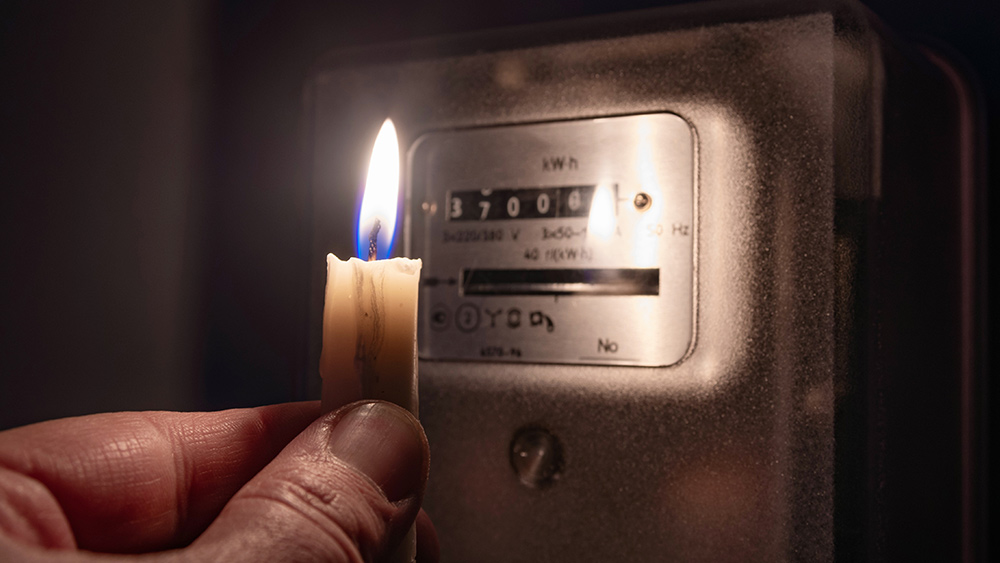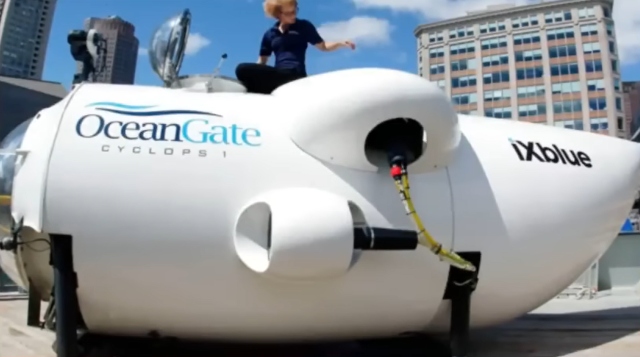How to spot and avoid FRAUDSTERS and SCAMMERS after a DISASTER
08/01/2023 / By Olivia Cook
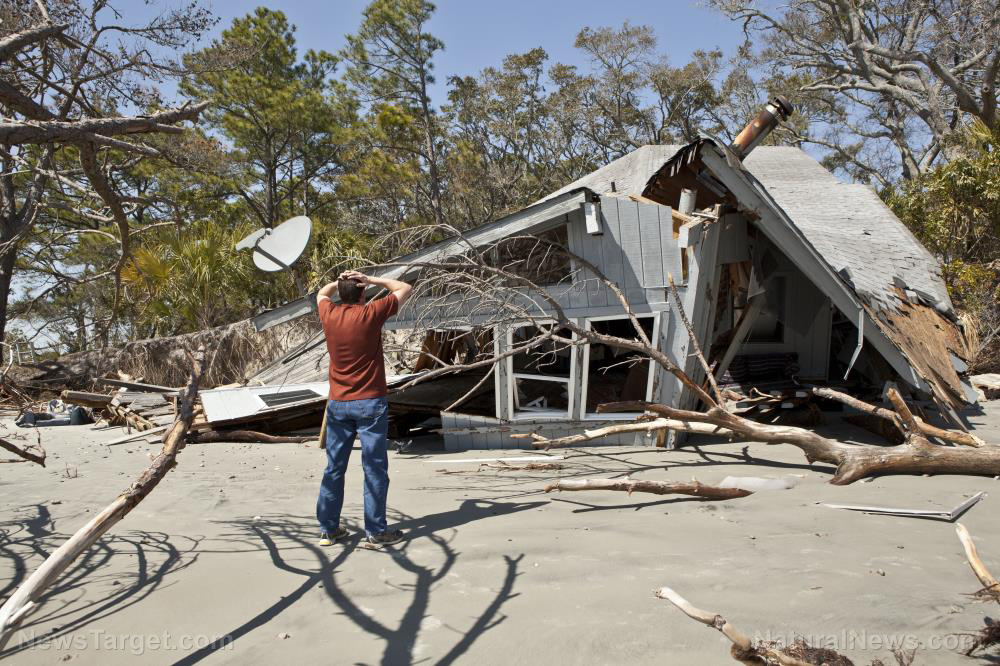
Disasters can bring out the best in people. Sadly they can also bring out the worst.
Here are some ways to spot and avoid a deluge of human vultures – fraudsters, looters, lowlifes, scammers, thieves – looking for an opportunity to exploit and prey on victims who had just lost everything following a disaster. (h/t to TheSurvivalMom.com)
Looters
Homeowners, in their haste to start their post-disaster cleanup, usually gut their homes to find undamaged household items and personal possessions and take them to a “safe” and dry place.
But more often than not, they resort to piling their salvaged belongings and valuables in their front yards with the intention of sorting through them later. Note that anything “left outside” – unguarded or unsecured – becomes fair game for human vultures searching for anything of value.
Identity thieves
Be careful about discarding sodden paperwork, mail and personal fires amid the pile of debris during your clean up as these discarded documents can be exploited, used to create fraudulent identities or even sold to other criminals. Prepare a grab-n-go binder to organize copies of important documents.
Protect your mail by immediately completing a United States Postal Service mail hold request, especially if you are unable to retrieve your mail while being displaced. The postal service will hold your mail for up to 30 days. For displacements longer than 30 days, you can complete a temporary change of address so your mail will be forwarded to wherever you are.
Cleanup and repair contractor fraud and scams
Be cautious and skeptical of anyone promising immediate cleanup and repairs. Those are dubious at best and a scam at worst. You’ll wind up with outrageously high price quotes and/or demands to pay up front only to vanish with your money without completing the job. Others can perform shoddy work that will require you to hire professionals to rectify their mistakes.
Don’t tell bidders, contractors and handymen you’ve just received your insurance check unless you absolutely need to. And don’t tell them how much it was because it will tell them how much to bid the job for.
Research a contractor’s reputation and work online. Before you pay, ask for proper identification, licenses and proof of insurance. A legitimate contractor will have no problem providing you with a current certificate of insurance. Check out tips for hiring reputable contractors to repair your property after a disaster.
Always get a signed contract. A detailed contract should provide specifics regarding cost, timing, payments and guarantees/warranties.
Never make the final payment until all the work agreed upon is done, the work performed meets local and state building codes and you’re completely satisfied.
Guard your personal information. Only scammers will say they’re government officials and then demand money, your bank account, credit card information or Social Security number.
Price gouging
This happens when businesses increase the cost of vital goods in demand or in limited supply at the expense of natural disaster victims. The majority of states currently have legislation making it illegal to increase prices during disasters.
Individuals pretending to be disaster victims
Be wary of anyone going door-to-door. No one likes to be taken advantage of, especially in the aftermath of a disaster. Always ask for additional information from those seeking assistance, such as requesting an address to verify their genuine needs, confirming if their home had been destroyed and ensuring they’re not simply seeking unwarranted handouts. There will be individuals out there that may use the addresses of homes that have been vacant due to a disaster (earthquake, fire, flooding, etc.)
Disaster-related charity scams
Scammers know how to seem like a real charity when they’re really just on the take. Check out tips on how to donate wisely and avoid charity scams.
Charitable solicitation fraud may occur when a fraudster poses as a legitimate organization, such as the Red Cross, or a non-existent charity established to support relief efforts. Phony websites reach a worldwide audience and are created to collect credit cards and other personal information that is later sold or used.
Verify spam schemes with web services like ScamBusters.org. (Related: Online safety: How to avoid common internet scams.)
Con artists impersonating disaster relief organizations, government agency officials or insurance agents
Know that the Federal Emergency Management Agency (FEMA) doesn’t charge application fees for assistance. If someone wants money to help you “qualify” for FEMA funds and other assistance, that’s a scam.
Never give banking information over the phone. FEMA, for example, should already have it and other pertinent information if you applied for relief. FEMA will notify survivors by phone or mail if their applications are receiving additional scrutiny. Check out some tips on how to avoid disaster recovery scams.
If you suspect a scam, report it to the Federal Trade Commission at ReportFraud.FTC.gov.
Find more stories like this at SelfDefense.news.
Watch this video about avoiding post-disaster scams.
This video is from the Daily Videos channel on Brighteon.com.
More related stories:
Online safety: How to avoid common internet scams.
Digital fraud: How to avoid QR code scams.
Digital prepping: How to keep your personal data safe.
Sources include:
Submit a correction >>
Tagged Under:
charity scams, Collapse, con artists, conspiracy, corruption, cryotpcurrency scams, deception, disaster, evade, fake, fraud, fraudsters, identity theft, impersonations, looting, preparedness, Price gouging, repair scams, scam artists, self-defense, SHTF, survival, tips
This article may contain statements that reflect the opinion of the author
RECENT NEWS & ARTICLES
COPYRIGHT © 2017 DISASTER NEWS


